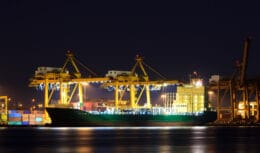

Novo motor da GM anunciado! Propulsor inédito será capaz de revolucionar a indústria automotiva global e tornar os motores a combustão obsoletos!
20 de abril de 2024 —
Valdemar Medeiros

Senai oferece cursos de Inglês totalmente gratuitos e online (EAD), sem processo seletivo e com certificado garantido, disponíveis para todo o Brasil
19 de abril de 2024 —
Flavia Marinho

Cielo abre processo seletivo URGENTE com 151 vagas de emprego para atuação de forma presencial, híbrida e home office
19 de abril de 2024 —
Valdemar Medeiros














